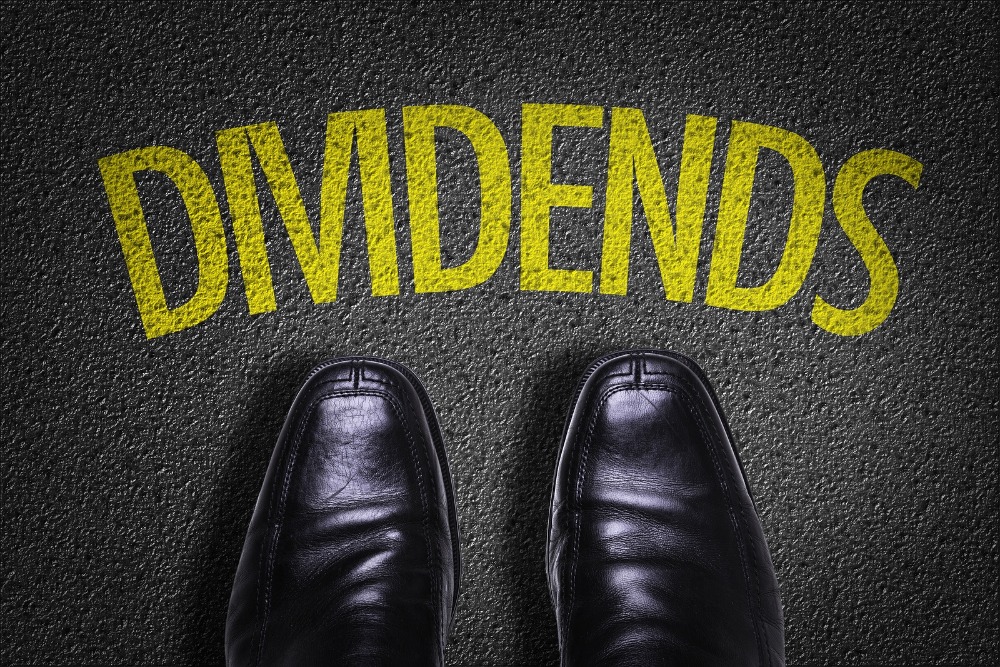The article “How To Earn Tax-Efficient Dividend Income” was originally published on MoneySense on January 31, 2017.
Just know that your dividends will turn up on your tax return whether you like it or not.
Q: If I am holding stocks that pay a dividend in a taxable account, would it be better to enrol them into a DRIP program if possible or just collect the dividend?
What is more tax-efficient?
—Nathan
A: When you earn investment income in a non-registered account – outside an RRSP or TFSA – there are tax implications. The tax implications can vary, Nathan, but I’ll try to explain the various rules.
When you own stocks in a taxable account, the tax payable on the dividends will depend upon the type of dividends earned.
A U.S. or other foreign dividend is taxed at your marginal tax rate, just like your other income, added to your other sources of income and taxed accordingly.
A Canadian dividend receives special tax treatment, due to something called the Dividend Tax Credit (DTC). The federal and provincial governments incentivize Canadians to invest in Canadian stocks by charging a preferential low tax rate on Canadian dividends.
For a Canadian earning $50,000 of income, the tax payable on Canadian dividends ranges from 8% to 19% tax depending on province or territory of residence. These rates compare to 28% to 37% tax on foreign dividends.
At $100,000 of income, Canadian investments attract 15% to 29% tax on dividends versus 35-46% for foreign dividend income.
It’s important to note that foreign dividends earned by a Canadian mutual fund or exchange-traded fund (ETF) generally retain their foreign dividend tax rate when paid out to you personally. The fact that the mutual fund or ETF is Canadian doesn’t generally change the character of the income from a foreign stock.
Some dividend income, such as that earned by Mortgage Investment Corporations (MICs) is taxed as interest income, despite being a dividend.
Other dividends, like those earned by investors in some tax-efficient mutual funds and ETFs offered by the likes of Horizons, CI, Purpose and Natixis convert certain types of income into other types of income.
For example, Horizons offers swap-based ETFs that convert dividend and interest income into deferred capital gains.
CI was the first mutual fund company to offer corporate class mutual funds in Canada and Purpose was the first ETF company. Corporate class seeks to reduce taxable distributions to investors by pooling income, losses and expenses from multiple funds to try to minimize highly taxed interest and foreign dividends in favour of preferentially taxed Canadian dividends and capital gains.
And Natixis has tax class funds that enable investors to choose the tax treatment of the income they want to receive – dividends, capital gains or tax-free return of capital. Return of capital leads to deferred capital gains on sale.
In your case, Nathan, your question about a Dividend Reinvestment Plan or DRIP is a good one, but as a tax reduction strategy, it is not. When you buy stocks and choose to have dividends automatically reinvested into new shares instead of paid out in cash, it doesn’t save you tax. A dividend earned, whether received in cash or reinvested, is taxable to you.
Additionally, I find investors are sometimes confused and think that if they don’t take withdrawals from their investments, they don’t pay tax. Once again, a dividend earned, whether withdrawn or not, is taxable to you.
A DRIP can be a great way to have your investments compound over time and ensure cash doesn’t provide a low-return drag on your portfolio. DRIPs save you commissions on reinvesting dividends because they are automatically reinvested into new shares.
But unless your dividends are subject to special tax treatment based on some of the factors discussed above, it doesn’t matter what you do with your dividends – they will end up on your tax return whether you like it or not.
Jason Heath is a fee-only, advice-only Certified Financial Planner (CFP) at Objective Financial Partners Inc. in Toronto, Ontario. He does not sell any financial products whatsoever.

